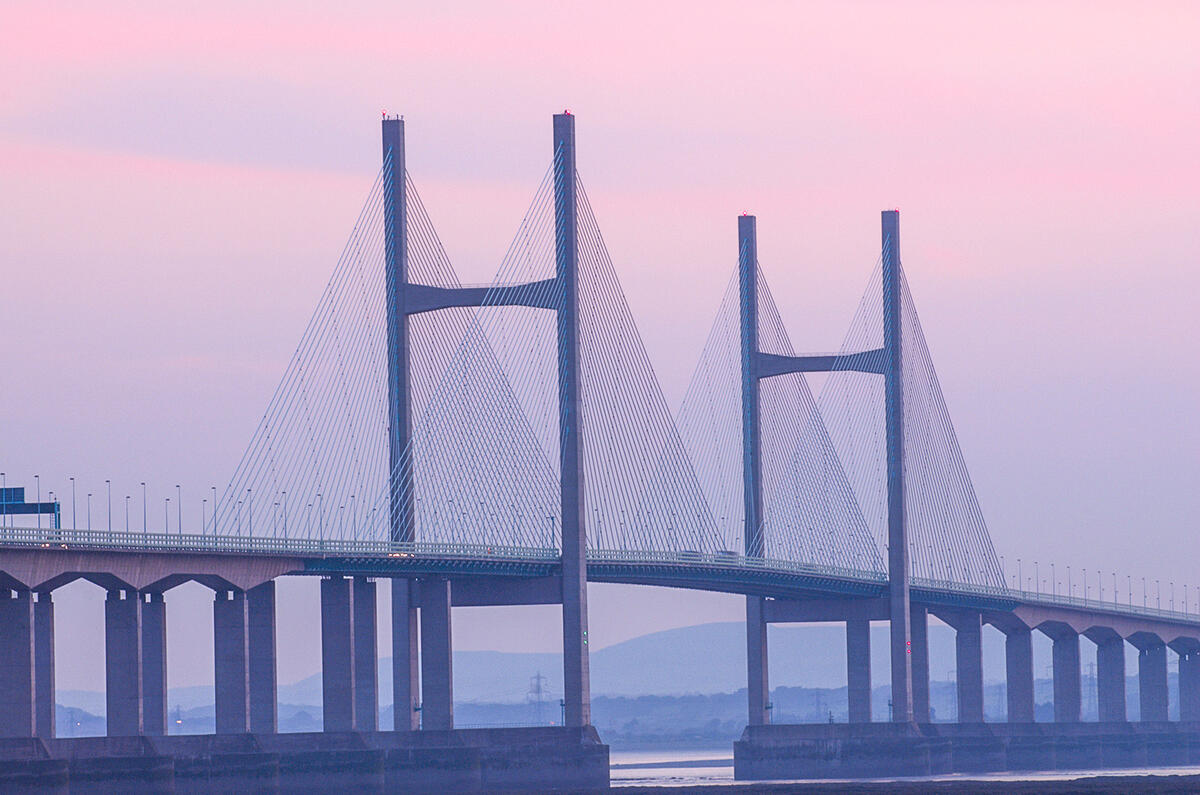The Severn Bridge toll is to be scrapped from the end of 2018, saving the two crossings’ 25 million-plus annual users about £1600 per year.
Drivers of vehicles with up to nine seats are currently charged £6.70 to cross westbound from England into Wales, while larger vehicles with up to 17 seats, or goods vehicles of up to 3500kg, have to pay £13.40. The highest £20 fee is reserved for over 17-seaters, or goods vehicles weighing more than 3500kg. A monthly ‘tag’ of £117.92, £235.84 or £396 applies to the three classes respectively.
It’s hoped that the abolition of the tolls, which apply to both the M48 Severn suspension bridge and M4 Second Severn Crossing, will encourage drivers to explore South Wales, and it’s expected that £100 million more per year will be brought into the region. The move was announced by secretary of state for Wales Alun Cairns.
The Severn Bridge, which was built in 1966, has always operated on a tolled basis, with the tolls helping to pay for the construction costs. The bridge became so busy that a second crossing - the Second Severn Crossing - was built two and a half miles downstream from the M48 crossing.
Transport secretary Chris Grayling celebrated the move, saying: “Abolishing the crossing fee will also drive economic growth for businesses in Wales and the South West and further strengthen the bond between our two great countries.”
The head of policy for the South West and Wales Freight Transport Association, Ian Gallagher, said the move could also encourage the uptake of low-emissions vehicles.
“Removal of the tolls altogether has been a long-term policy position for the Freight Transport Association, with members on both sides of the bridges incurring some of the highest tolls charges in the UK, money better spent on upskilling, recruitment and purchasing greener vehicles.”
Read more:
£10 T-charge for high polluting vehicles to start in autumn
London Ultra Low Emission Zone start date announced
Scrappage scheme and speed limit changes top government air quality plans





Join the debate
Add your comment
£100m
Blah blah blah, will add £100m. Ok, how do you baseline that? And who is going to measure it? Or is it the usual unsubstantiated expert view that is total tosh when really scrutinised.
Who is paying?
I haven't seen a clear answer yet about how the shortfall will be made up. I hope it's not from the 95% of tax payers or road users who will never use the Severn bridges.
It certainly eased the
It certainly eased the congestion on the Forth bridge when tolls were scrapped. It is still a traffic hotspot, but less than it used to be. And the new bridge will hopefully solve that issue